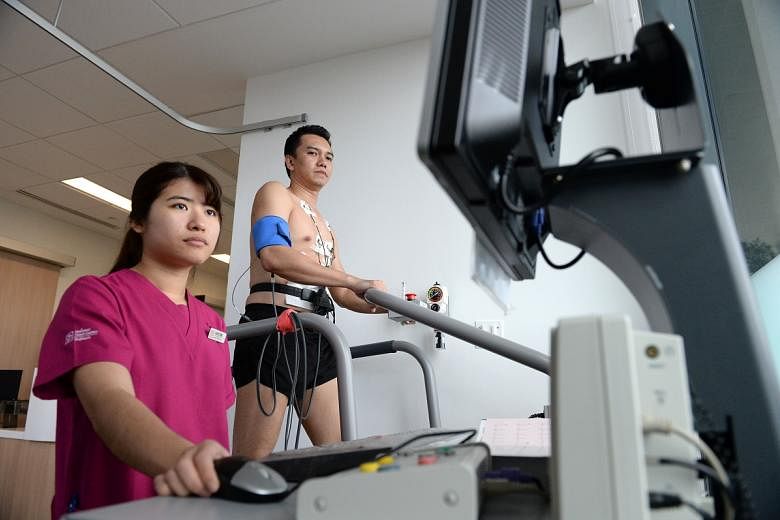No test is foolproof and even detailed medical screening is not guaranteed to successfully detect every underlying health ailment a person may have.
Thus, endurance sports events should be approached with both caution (in getting the doctor's all-clear) and wisdom (in being sufficiently prepared), say experts.
The death of a runner yesterday at the Standard Chartered Marathon Singapore again cast the spotlight on the importance of sports safety when it comes to taking part in endurance events.
Briton John Gibson, 29, collapsed about 1km away from the finish line while running in the half-marathon. He died after being rushed to a hospital.
"It's hard to say if there are gold standards (in terms of health screenings for endurance events)," said specialist sports physician Dr Patrick Goh, although he noted that organisations like the American Heart Association have relevant guidelines.
Dr Goh, who was medical director of many editions of Singapore's marquee marathon during the 1990s until the early 2000s, said athletes need to be mindful of the likelihood of an underlying medical condition, and if they were recently ill before putting their bodies through the exertion of an event like a marathon.
"We don't expect someone in their 20s to collapse suddenly, so it's underlying illness which may be an issue," he said, noting that cardiac conditions tend to be linked with incidents of deaths at endurance events.
"Cardiac conditions may cause abnormal heart rhythms and these need to be screened."
Dr Julian Tan, an interventional cardiologist at Mount Elizabeth Hospital, advised one to undergo an echocardiogram (an ultrasound examination of the heart) and a treadmill test, which can help provide more than just a "snapshot" an electrocardiogram (ECG) gives.
He said: "These tests are a good way to sieve out life-threatening conditions. People who are couch potatoes but want to take up marathons or cover a distance greater than they normally do should consider these tests."
The tricky thing, however, is finding a balance between imposing mass screening through such tests - in which the "take-up rate" is very low - and cost efficiency.
Tests also do not pick up everything and merely serve as a tool to eliminate some risks.
Those with a history of issues such as light-headedness, heart palpitations, as well as older people, should be flagged to go for such screenings - especially if they are attempting endurance events for the first time, said Dr Goh.
With endurance events becoming highly popular, extending beyond running to other genres such as triathlons, veteran distance running coach Steven Quek said the importance of preparation is, unfortunately, also often overlooked.
He said: "It's easy to think that everyone knows how to run and everyone can run.
"As a coach who has been in this for so many years, I'm happy to see many people motivated to run - but people need to prepare for it too.
"It takes about three to four months to prepare properly for a race (like a half- or full marathon). If you are not in the condition to run because you could not prepare, it's okay to skip and return another time.
"Don't risk it for safety reasons, and don't fool around with your own life."

